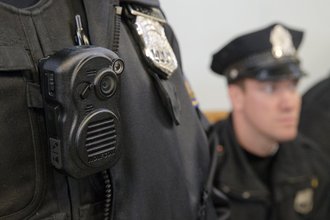

Declassify leaked Iran report to see if Trump is lying on intel — again

Did ICE quietly rescind illegal guidance curtailing congressional visits?

Featured Issues
-

Reform Government Secrecy
The U.S. classifies far too many secrets, obstructing democracy.
More on the Issue -

Strengthen the Freedom of Information Act
The Freedom of Information Act gives the public a right to access government records.
More on the Issue
Deeper Dives on Secrecy
-
The Pentagon Papers

Daniel Ellsberg’s leak led to a landmark Supreme Court ruling on press freedom.
Read about it here -
The Classified Catalog

FPF is tracking reports of the Trump administration’s unforeseen levels of secrecy.
Read about it here

Tips for requesting body-worn camera footage from the L.A. protests
Plus: Don’t miss FPF’s upcoming virtual FOIA event

FPF FOIA project targets press abuses
Plus: Gabbard wants the intelligence community to embrace AI. Will that be good for declassification?

FPF takes State Department to court over Öztürk secrecy
Freedom of Information Act lawsuit seeks documents on targeting of journalist

Snowden surveillance disclosures should be revisited as DOGE builds its “master database”
Plus: Justice Department lets former White House officials accused of stealing presidential records keep them.

Snowden surveillance revelations take on added urgency 12 years later
The anniversary is a reminder to resist the characterization of whistleblowers as threats to national security for revealing information the government wants to keep secret.

FOIA reporting makes headlines. Wired and 404 Media make the articles free.
Plus: The Food and Drug Administration is still hiding deadly E. coli outbreak information

Trump administration abuses secrecy rules to manipulate news narrative
Podcast appearance highlights National Archives crisis and how Trump’s efforts to rewrite history will make it harder for policymakers to be effective

Do you trust Marco Rubio to administer the Electoral College?
Plus: Major hack of FOIA software reveals problems of government’s overreliance on private companies

Politicizing declassification has dire consequences
It will corrupt historical accounts of this administration — and is a recipe for disaster.

Did Gabbard respond to FPF FOIA release by firing officials, scrubbing website?
Plus: No, the $400 million jet isn’t going to a library. It’s going to a private foundation.
